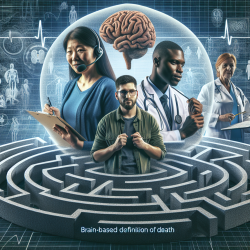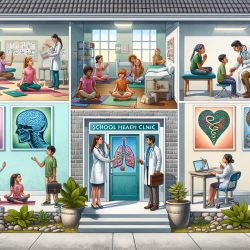Introduction
In the dynamic field of healthcare, practitioners often encounter complex situations that require not only medical expertise but also adeptness in handling disagreements and conflicts. One such challenging area is the determination of death by neurologic criteria, often referred to as a brain-based definition of death (BBDD). The research article "Navigating Disagreement and Conflict in the Context of a Brain-Based Definition of Death" offers valuable insights into this intricate subject, providing strategies for practitioners to enhance their skills in managing such conflicts effectively.
Understanding the Root Causes of Disagreement
The research identifies four primary categories of reasons for disagreements or conflicts in the context of BBDD:
- Grief and Unexpected Events: Families may need time to process the sudden loss of a loved one, especially when the death is unexpected.
- Misunderstanding: Miscommunications or lack of understanding about medical procedures and outcomes can lead to conflicts.
- Loss of Trust: Previous negative experiences with healthcare providers or systems can contribute to a lack of trust.
- Religious, Spiritual, or Philosophical Differences: Diverse beliefs about life and death can lead to disagreements about BBDD.
Strategies for Practitioners
To navigate these challenges, the research suggests several strategies:
- Effective Communication: Tailor communication strategies to the needs of families, ensuring clarity and empathy. Providing information in a safe and private setting can help families process their grief.
- Building Trust: Acknowledge past experiences and listen actively to families' concerns. Involving spiritual or cultural advisors can also help bridge gaps in understanding.
- Addressing Misunderstandings: Use clear, consistent language and educational aids to explain medical procedures and outcomes. Repeating information and using interpreters when necessary can reduce misunderstandings.
- Respecting Beliefs: Engage in open discussions about families' beliefs and involve allied health providers to explore these further. Recognize and respect the use of miracle language as an expression of hope or belief.
The Role of Healthcare Policy
The research underscores the importance of healthcare institutions developing policies to guide practitioners in managing conflicts related to BBDD. Such policies should be developed with input from a broad range of stakeholders, including patients and families, to ensure they are comprehensive and respectful of diverse perspectives.
Conclusion
Practitioners play a crucial role in navigating the sensitive and often challenging situations surrounding the determination of death by neurologic criteria. By understanding the root causes of disagreement and implementing the strategies outlined in the research, practitioners can improve their skills in managing conflicts effectively. Ultimately, the goal is to resolve disagreements in a manner that is respectful and relationship-preserving.
To read the original research paper, please follow this link: Navigating disagreement and conflict in the context of a brain-based definition of death.










